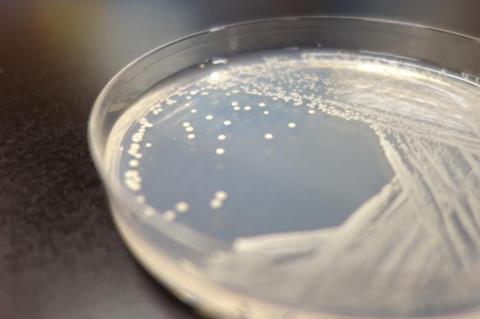Yeast is an important model organism for the understanding of basic cellular processes, owing to its similarity to plants and animals at the cellular level while being considerably simpler to manipulate and study. Therefore, redesigning and synthesising a yeast genome can help scientists to understand the impact of genetic variations on individual traits, potentially elucidating the mechanisms of genetic diseases.

With this goal in mind, scientists from the NUS Synthetic Biology for Clinical and Technological Innovation (SynCTI), the Synthetic Biology Translational Research Programme (Syn Bio TRP) and the Department of Biochemistry at the Yong Loo Lin School of Medicine, National University of Singapore (NUS Medicine), have synthesised a redesigned yeast—chromosome XV, that comprises 1.05 million base pairs - the largest synthesised chromosome in Asia.
Major milestone
The scientific team, led by Associate Professor Matthew Chang, is part of the Synthetic Yeast Genome Project (Sc2.0), an international consortium comprising labs all over the world working together to redesign and construct from scratch all 16 yeast chromosomes. The work of A/Prof Chang’s team is seen as a major milestone in the field of synthetic biology.
In creating the synthetic Chromosome XV (synXV), the NUS Medicine team extensively redesigned the original DNA to incorporate various changes that resulted in a sequence which is distinctively unique and different from the natural one. In order to streamline the assembly process of synXV, the team developed a groundbreaking technology, called CRISPR/Cas9-mediated mitotic recombination with endoreduplication (CRIMiRE).
This innovative technology significantly speeds up the exchange of large chromosomal DNA segments at specific sites, hence enabling multiple synthetic chromosome segments to be assembled concurrently and stitched together into a complete synthetic Chromosome XV. The work is published in Cell Genomics.
Generating combinations
Upon generating the synthetic yeast chromosome, CRIMiRE further allows for the intentional mixing and matching of synXV with another yeast chromosome. This generates different genetic combinations for studies, which illuminates the association between genetic variations and individual traits.
Given the challenges of working with extremely long DNA sequences, the traditional approaches are unable to change the sequences efficiently. However, the use of CRIMiRE has simplified the process, shortening it tenfold, potentially revolutionising the way larger synthetic chromosomes are built for more complex organisms.
“This achievement opens the door to understanding basic questions about biological processes,” said A/Prof Matthew Chang.
Technical prowess
“Our journey to complete the construction of the synthetic yeast chromosome has been remarkable. We have not only showcased our technical prowess in creating synthetic chromosomes but are now able to rapidly reconfigure them into different designs for further studies. These synthetic chromosomes are our key to unlocking answers to fundamental biological questions, offering the potential for groundbreaking advancements that can ultimately benefit humanity in profound ways,” he added.
“The achievements from this work hold the promise of paving the way for future advancements in synthetic genomics, especially with larger and more complex chromosomes. This approach can be beneficial in deciphering the mechanisms of and understanding genetic diseases better, and potentially devising treatments,” added Dr Foo Jee Loon, Research Assistant Professor from SynCTI, Syn Bio TRP and the Department of Biochemistry, NUS Medicine, the first author of the paper.
Topics
- Asia & Oceania
- Chromosome XV
- CRIMiRE
- Foo Jee Loon
- Matthew Chang
- Microbial Genomics
- National University of Singapore
- NUS Synthetic Biology for Clinical and Technological Innovation
- One Health
- Research News
- Synthetic Biology
- Synthetic Biology Translational Research Programme
- Synthetic Yeast Genome Project
- yeast
- Yong Loo Lin School of Medicine







No comments yet